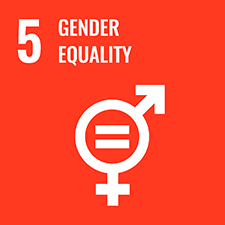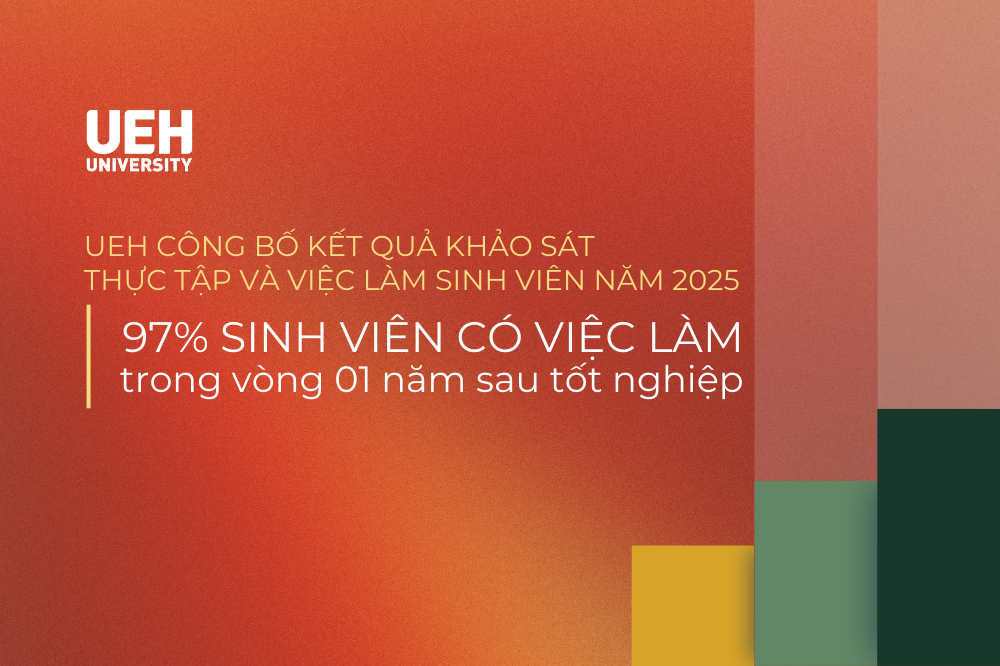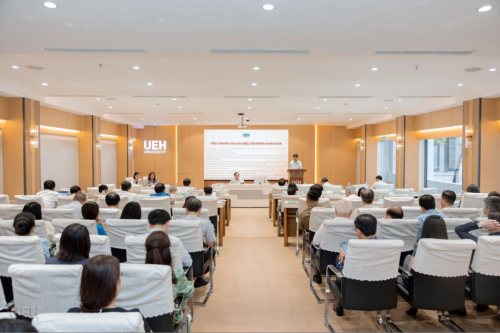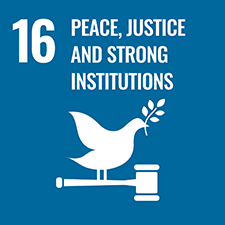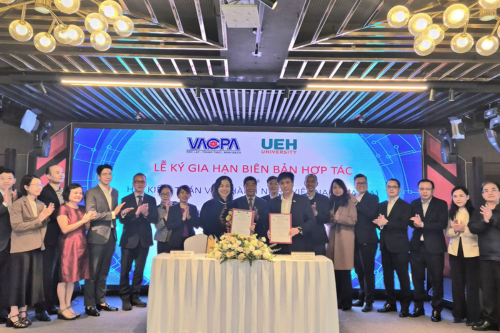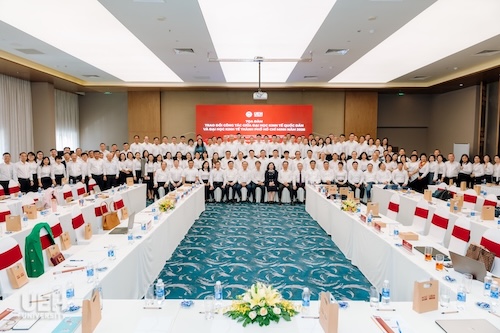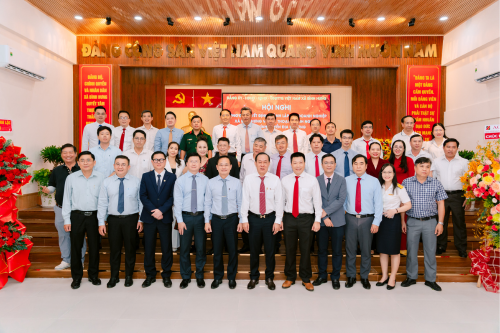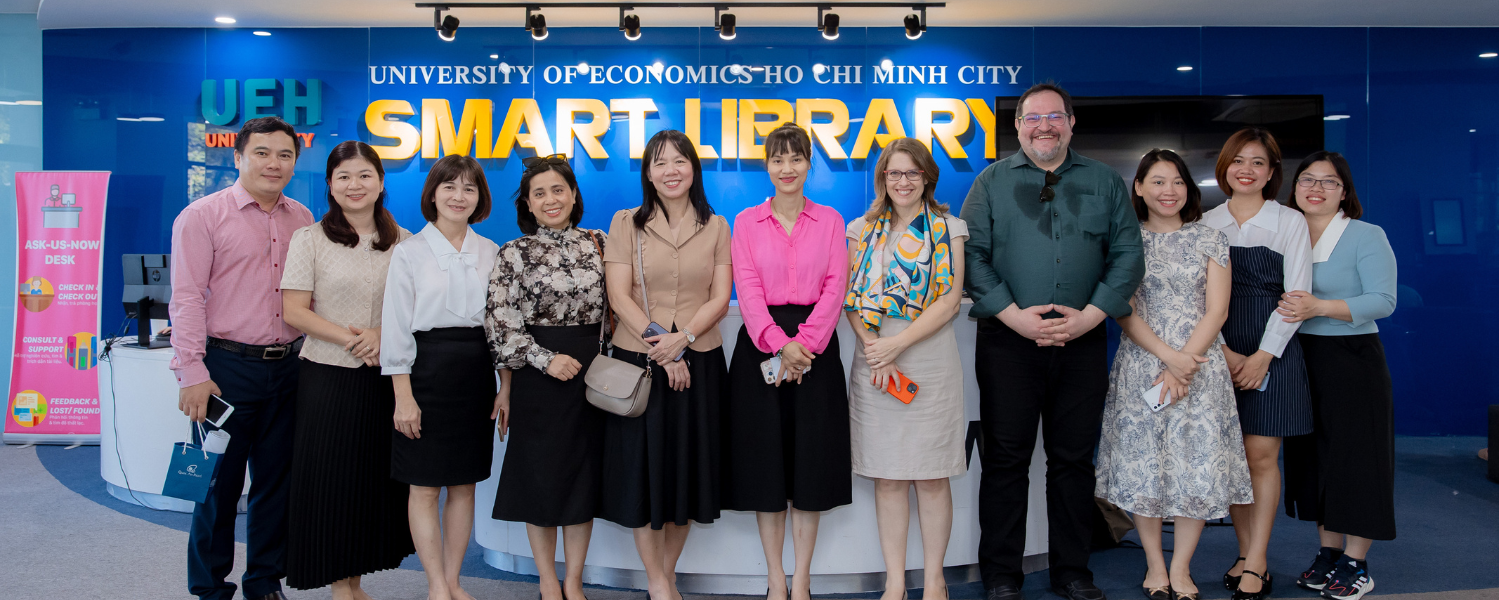
UEH Hosts National Planning Conference for Digital Skills to Succeed Project 2025
05 Apr, 2025
Embodying the spirit of "From Concept to Action," the National Planning Conference for the "Digital Skills to Succeed" (DS2S) Project 2025 was held successfully over two days, March 26–27, 2025, at the University of Economics Ho Chi Minh City (UEH). The event brought together representatives from the Ministry of Education and Training (MOET), delegates from six partner universities, and experts and coordinators from the German Agency for International Cooperation (GIZ).
The conference welcomed key figures from regulatory agencies, international organizations, and partner universities. Among the distinguished guests were Dr. Dang Van Huan, Deputy Director General of the Higher Education Department (MOET); Associate Professor Dr. Bui Quang Hung, Vice President of UEH; Associate Professor Dr. Phan Thi Bich Nguyet, Chairwoman of UEH’s Strategic and Policy Advisory Council; Associate Professor Dr. Trinh Thuy Anh, Vice Rector of UEH College of Technology and Design; Ms. Sabrina Garcia, Project Director at GIZ; and Ms. Sita Zimpel, DS2S Project Manager in Vietnam. The conference also saw active participation from project members representing the six partner universities: National Economics University (NEU), University of Social Sciences and Humanities – Vietnam National University, Hanoi (USSH-VNU), Vietnamese-German University (VGU), Vietnam Women's Academy (VWA), Academy of Public Administration and Governance (APAG/NAPA), and UEH itself.
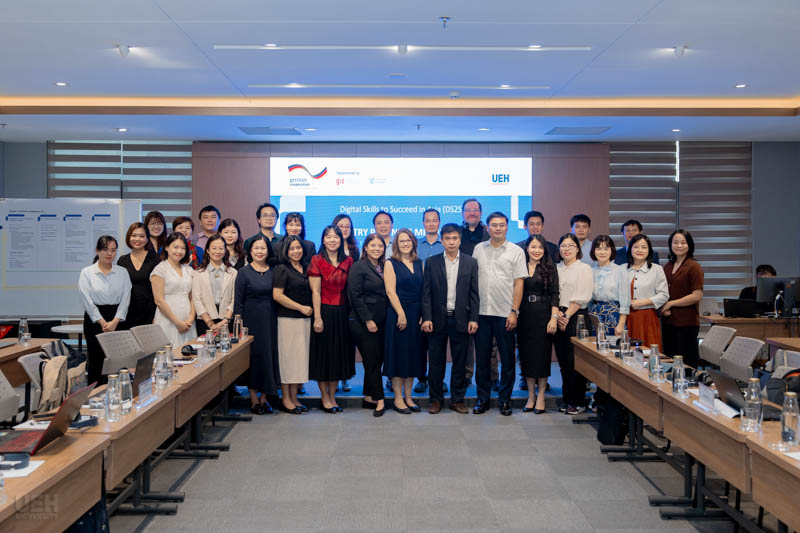
Delegates attending the National Planning Conference of the “Digital Skills for Success” Project
The “Digital Skills for Success” (DS2S) project, funded by the German Federal Ministry for Economic Cooperation and Development (BMZ), aims to enhance digital skills among university students, especially women, in Bangladesh, India, and Vietnam. In Vietnam, the project brings together six partner universities to co-design and implement micro-credential courses – ranging from foundational to advanced levels, as well as Faculty Development Programs (FDP).
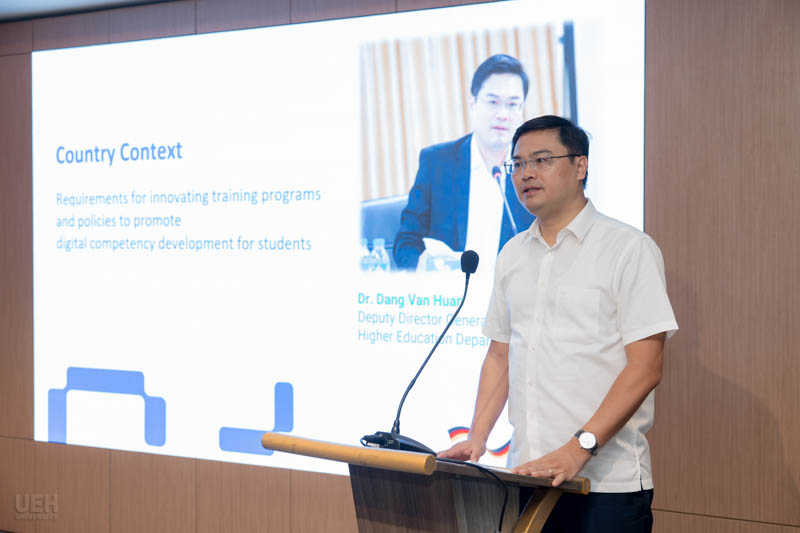
Dr. Dang Van Huan - Deputy Director General, Department of Higher Education presented an overview of the higher education context and the Ministry of Education and Training's digital competency policy
Following its launch and foundational phase in 2024, the year 2025 marks a pivotal shift for DS2S with the theme “From Concept to Action” The project aims to develop digital skills for students – particularly non-tech majors – to meet the increasing demands of the labor market. Three key focus areas currently being effectively implemented are: Artificial Intelligence (AI), Data Analytics, and Digital Entrepreneurship. With close cooperation between universities and international organizations, DS2S is gradually realizing its goal of building a sustainable and flexible digital education ecosystem in the region.
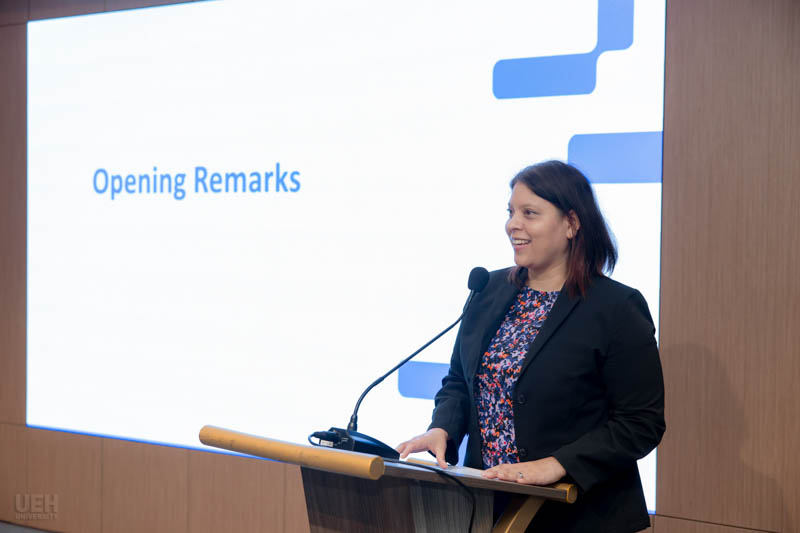
Ms. Sita Zimpel - Project Team Lead in Vietnam delivers the opening speech
In her opening remarks at the conference, Ms. Sita Zimpel - Team Lead of the DS2S Project in Vietnam - emphasized: “The DS2S Project reflects the deep connection in the 50-year Vietnam-Germany relationship. As Vietnam enters a ‘national breakthrough’ phase, universities play a key role in developing the digital workforce. We believe that from these initial micro-credentials, universities will gradually master the content and expand this modern training model.”
The conference featured a packed two-day agenda with various in-depth discussion sessions and practical sharing. On the first day, the conference focused on outlining the roadmap and updating on project activities. The Ministry of Education and Training presented an overview report on the higher education landscape and digital competency development policies in Vietnam. Delegates were also updated on the implementation results of the DS2S Project in 2024 and shared their expectations for 2025. Key programs introduced included FMC3 - Basic Micro-Credential on Digital Entrepreneurship, and FDP5 - Faculty Development Program on Innovative Teaching Methods. Additionally, partner universities engaged in group discussions to build detailed implementation plans and strengthen coordination for the coming year.
On the second working day, the conference centered around technology, particularly artificial intelligence (AI), and university-industry collaboration. Delegates heard about the application of AI in teaching from the University of Social Sciences and Humanities - Vietnam National University, Hanoi, and explored the learning pathways for the specialized topics “Artificial Intelligence for Social Good (SMC11)” and “Basic Data Analytics (SMC10)”, along with discussions on university-industry cooperation models in higher education.
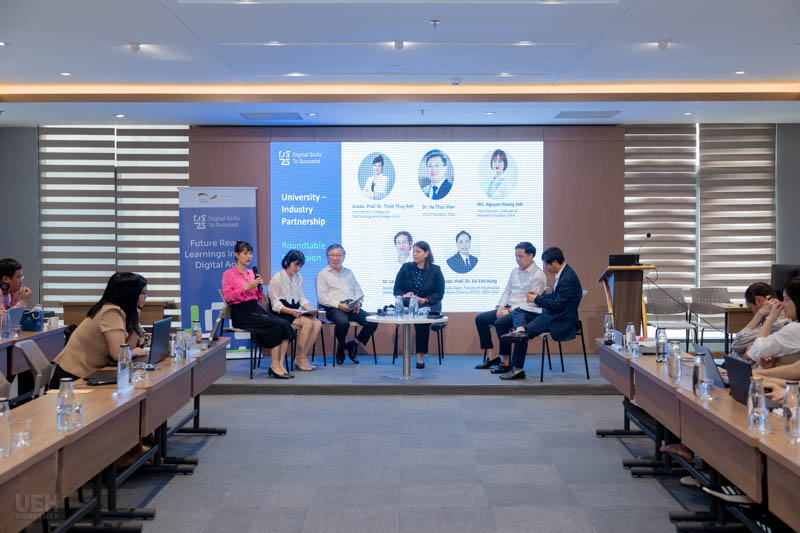
Assoc. Prof. Dr. Trinh Thuy Anh shares UEH’s experience at the Panel on University-Industry Collaboration Models
In a key presentation from UEH, Assoc. Prof. Dr. Bui Quang Hung - Vice President of UEH - introduced the university’s comprehensive innovation ecosystem, based on a philosophy of connecting schools, businesses, and communities to promote sustainable development. Since 2020, UEH has implemented the program “Connecting Communities - Spreading Knowledge - Sustainable Action” with the goal “For a More Sustainable Future.” Some notable results of UEH’s model include:
+ Over 150 startups incubated, operating in fields such as AI, EdTech, E-commerce, etc.;
+ More than 12,000 job opportunities connected, 7,600+ student internships, 136 businesses partnering in training programs;
+ Innovative infrastructure systems like Open Lab, Design Studio, 3D Factory, and specialized programs such as Hackathon, FinTechNovation, and Incubation Program;
+ Over VND 112 billion in scholarships mobilized to support talent development and knowledge dissemination to the community
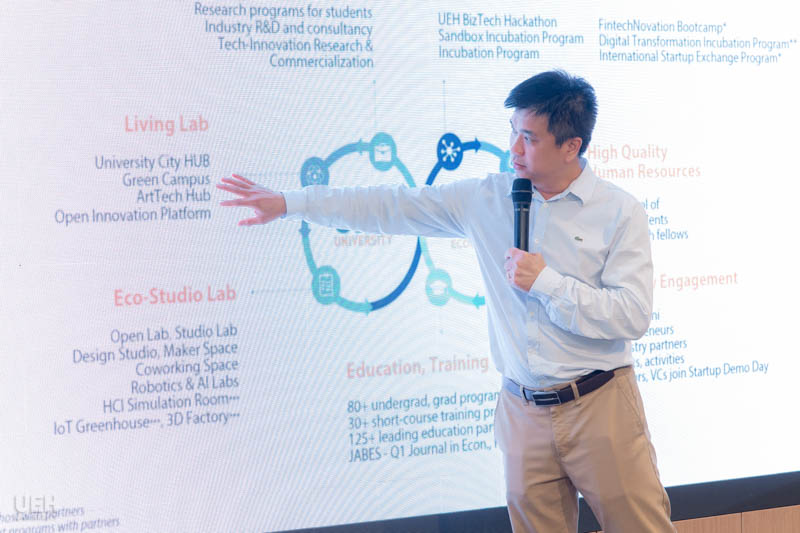
Assoc. Prof. Dr. Bui Quang Hung sharing about UEH's Innovation Ecosystem
Through this ecosystem, UEH not only trains high-quality human resources but also creates opportunities for students, lecturers, and researchers to commercialize their products and contribute directly to social innovation.
Notably, the expert delegation visited UEH’s learning and innovation ecosystem. Delegates were deeply impressed with the modern lab system, UEH Maker Space, creative studios, experiential learning spaces, and startup incubators – systematically invested by UEH to effectively serve digital skills training, entrepreneurship, and student innovation.
The program concluded with the signing ceremony of a cooperation agreement between GIZ and the Vietnamese-German University (VGU), marking a new step in expanding the project's strategic cooperation network.
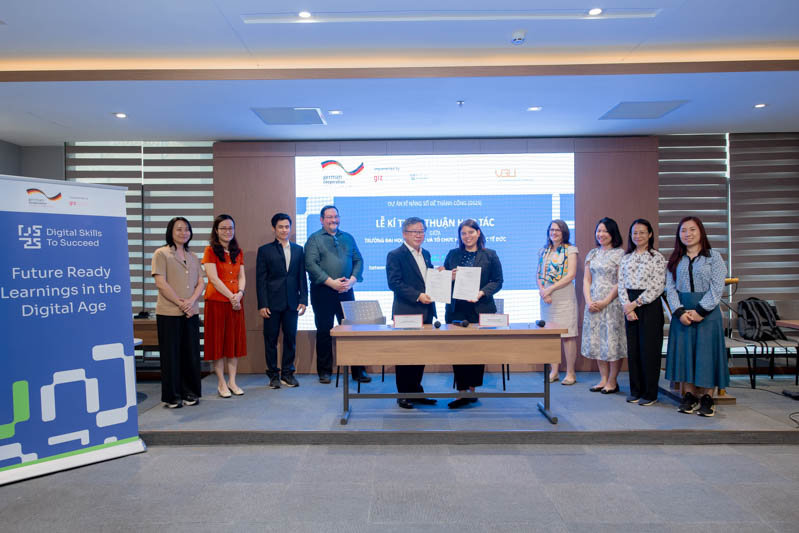
Some other images from the conference:
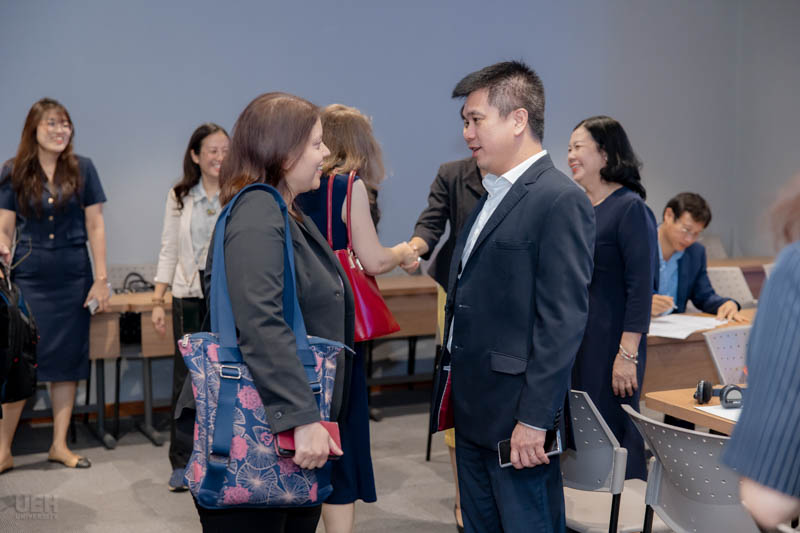
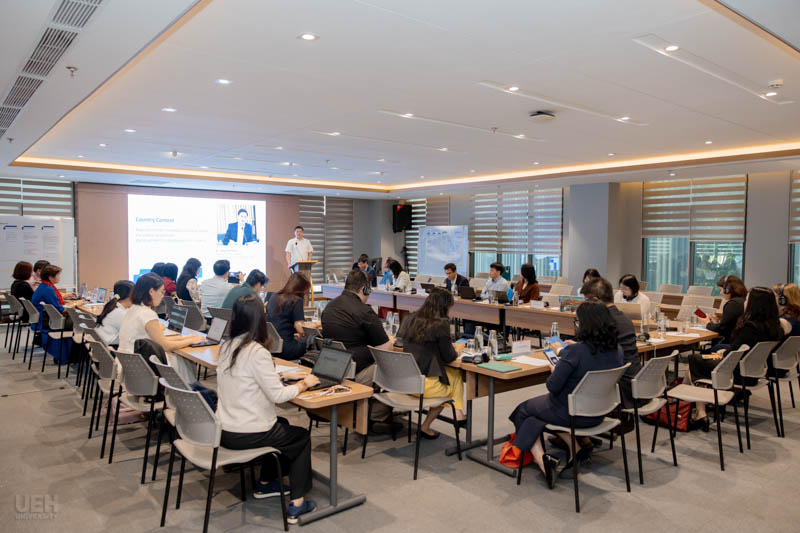
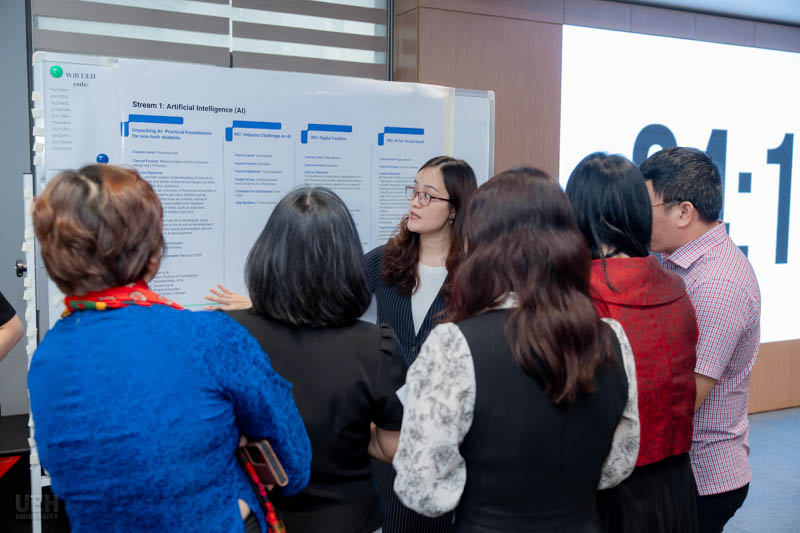
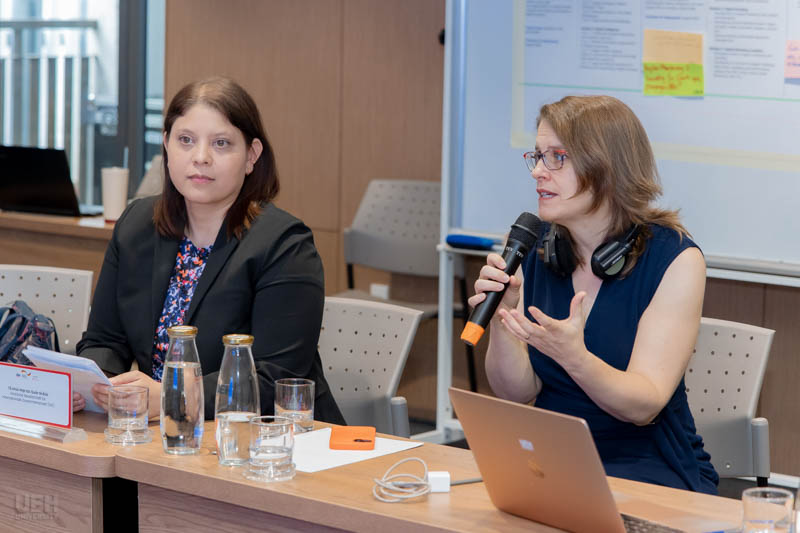
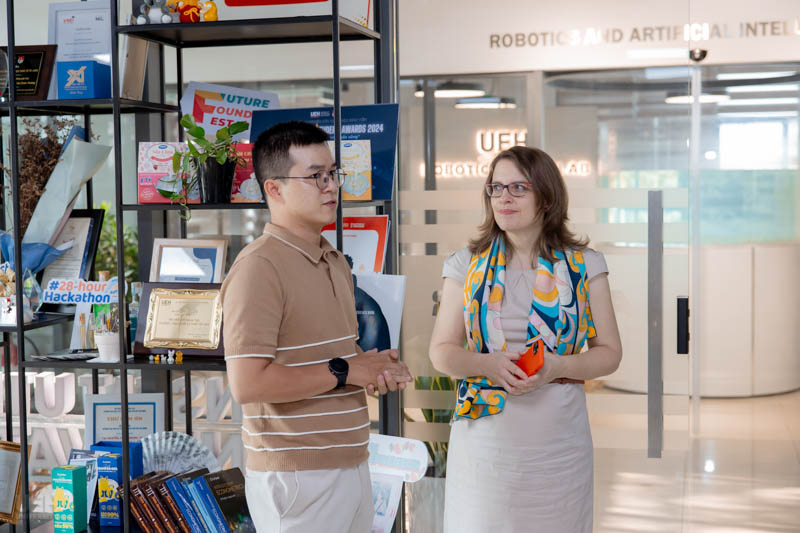
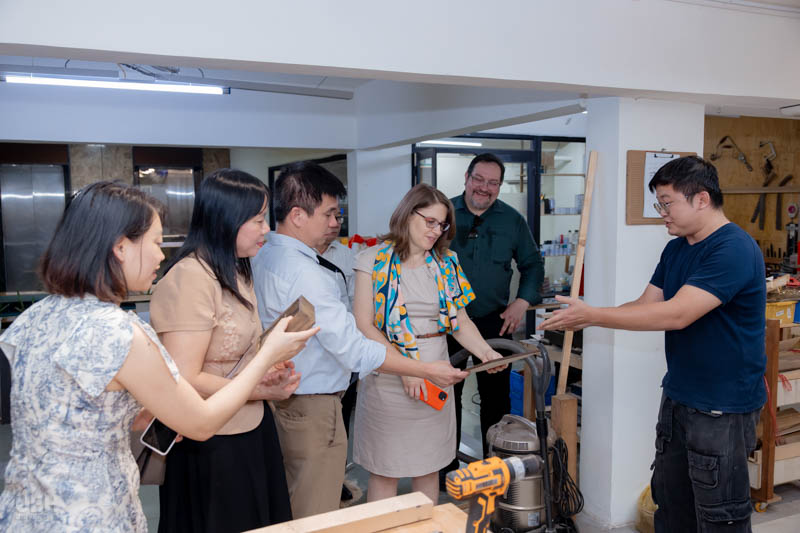
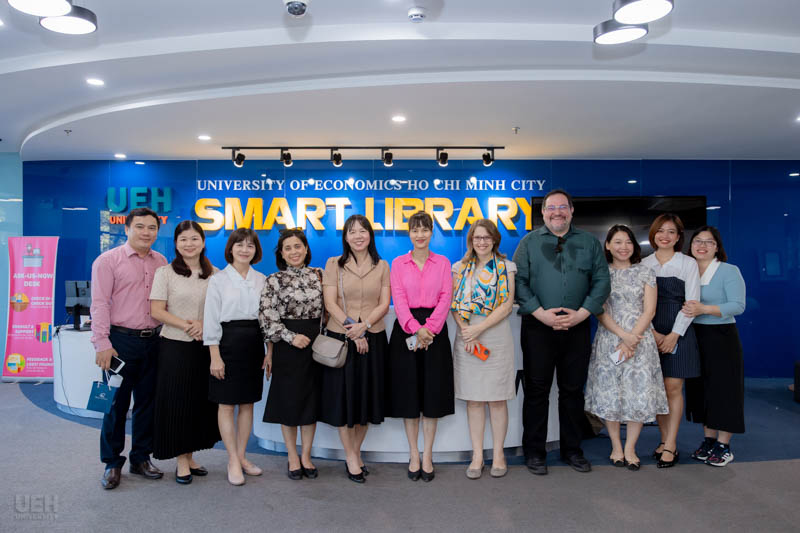
News, photos: DS2S Project, Department of Communications and Partnerships


